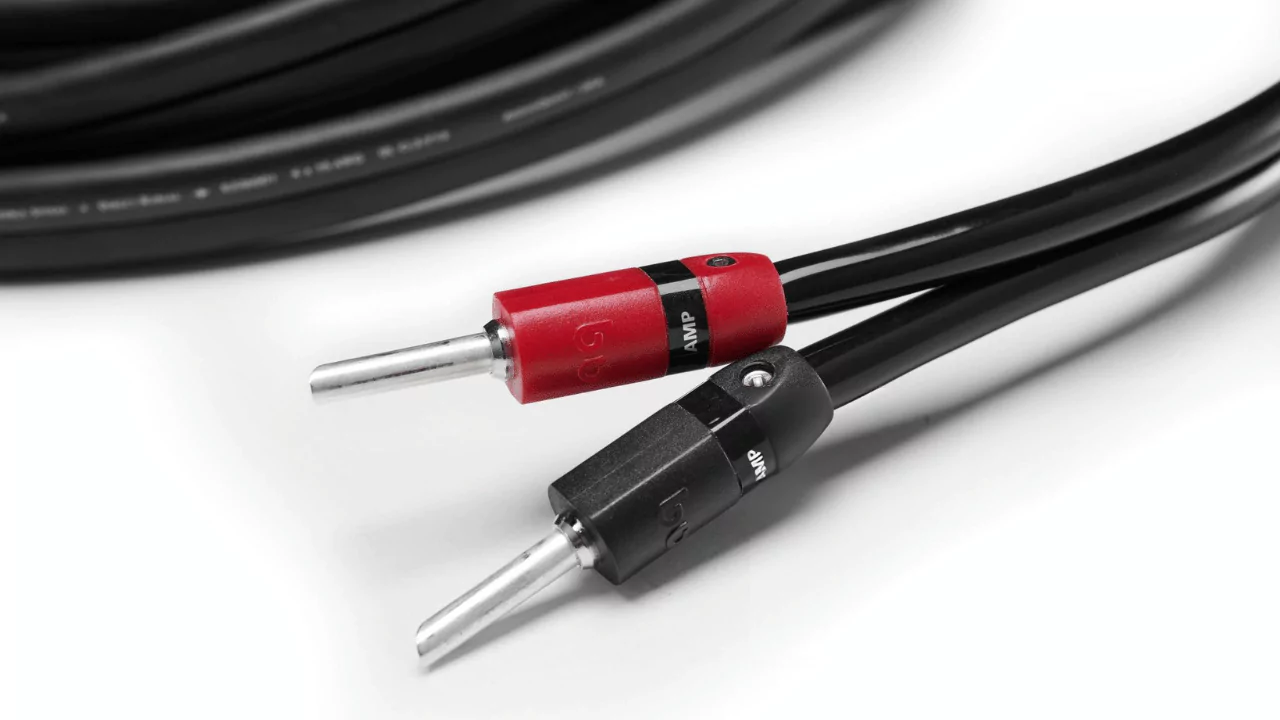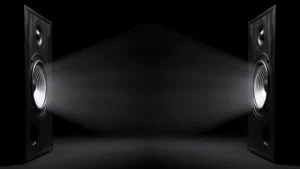Yes, speaker wire can affect sound quality, but not necessarily in the way expensive cables advertise. While wire quality does matter, the human ear typically can’t distinguish the difference between fancy and standard options for most setups.
Let’s explore the science behind speaker wire and the factors that truly impact sound.
In This Article:
Can Speaker Wire Length Affect Sound Quality?
Yes, the length of the speaker wire can affect sound quality, but it’s not always a major factor. Longer wires can cause signal degradation due to additional resistance and impedance. Resistance causes voltage drops along the wire, while impedance mismatch can cause signal reflections. These factors can lead to signal distortion, data errors, and reduced signal-to-noise ratio.
How Can I Choose the Right Speaker Wire for My System?
Choosing the right speaker wire for your system is about finding a balance between quality and practicality. Here’s a quick guide:
Wire Gauge:
- Standard Systems (Speakers under 50 feet, Low Wattage): 16-gauge wire is perfectly adequate.
- Longer Runs (Over 50 feet): Consider 14-gauge wire to minimize resistance.
- High-Powered Systems: For powerful amplifiers, a 12-gauge wire might be beneficial.
Material:
- Always opt for pure copper wire.
Length:
- Keep your speaker wires as short as possible without straining the connections.
Other Considerations:
- Use quality speaker connectors (banana plugs or spade lugs) for secure connections.
- Avoid splicing wires whenever possible.
Debunking Myths About Speaker Wire and Sound Quality
Myth 1: Expensive Speaker Wires Enhance Sound Quality
There’s no scientific evidence that super-expensive speaker wires significantly improve sound quality compared to standard options. This doesn’t mean all wires are created equal, but the difference is often negligible for most listeners.
Myth 2: Speaker Wire Needs a “Break-In” Period
Some claim speaker wires need a “break-in” period of hundreds of hours to sound their best. There’s no scientific basis for this. Quality speaker wire functions optimally right out of the box.
Understanding the Science Behind Speaker Wire
Here’s where things get technical, but we’ll keep it simple. Three key factors in speaker wire impact sound:
- Resistance: Think of resistance like friction in a water pipe. Higher resistance cables make it harder for the electrical signal to travel from your amplifier to the speakers. This can lead to a decrease in volume and alter the sound quality, especially at high volumes.
- Thickness (Gauge): Thicker wires (lower gauge numbers) have less resistance. This becomes more important with longer cable runs or powerful amplifiers. For most home audio systems, standard 16-gauge wire is perfectly adequate.
- Capacitance and Inductance: These are electrical properties that can affect the high-frequency range of sound. However, their impact on audible sound quality is minimal in most cases.
Cases Where Speaker Wire Can Affect Sound Quality?
While expensive wires likely won’t revolutionize your listening experience, there are situations where speaker wire selection does matter:
- Very long cable runs (over 50 feet): With long distances, resistance becomes more significant. Consider using thicker gauge wire (12 or 14 gauge) to minimize signal loss.
- High-powered audio systems: Powerful amplifiers push more current through the wires. Here, thicker gauge wire helps ensure efficient power transfer and maintains sound quality.
Factors that Can Affect Speaker Wire Quality
Material: Copper is the best conductor for speaker wire. Avoid aluminum or copper-clad aluminum as they have higher resistance, impacting sound quality at higher volumes.
Splicing and Length: Avoid splicing speaker wires whenever possible. Each connection introduces a small amount of resistance that can affect sound quality. Keep speaker wire lengths as short as possible without straining the connection points.
Bi-Wiring vs Single Wiring
Bi-wiring uses two sets of speaker cables per speaker, one for the high frequencies and another for the low frequencies. While some claim bi-wiring improves sound quality, there’s little scientific evidence to support this. Most listeners won’t hear a difference, and single wiring with good-quality cable is generally sufficient.
Optimizing Your Speaker Wire Setup
Focus on getting good quality speaker wire that’s the appropriate thickness for your setup. Don’t get caught up in expensive cables marketed to enhance sound. By understanding the science behind speaker wire and its limitations, you can make informed decisions to optimize your listening experience.
Here are some additional tips:
- Use quality speaker connectors like banana plugs or spade lugs for a secure and reliable connection.
- Keep your speaker wires organized to avoid tangles and electrical interference.
- Invest in good-quality speaker stands or mounts to properly position your speakers for optimal sound dispersion.
By focusing on these aspects, you can ensure your speaker wires deliver the audio signal efficiently and allow your speakers to perform to their full potential.




